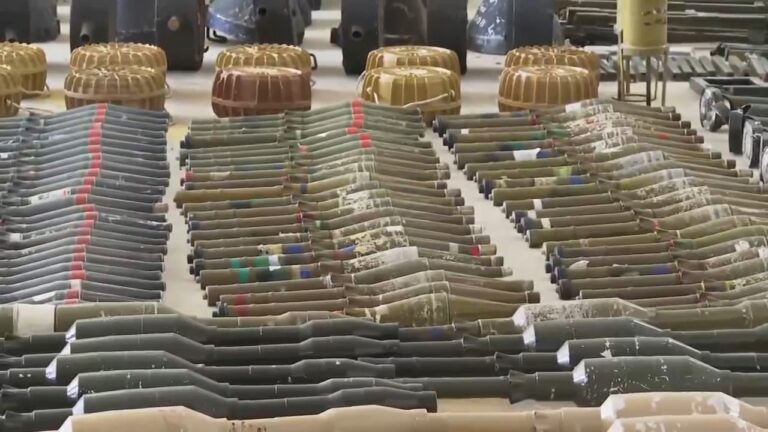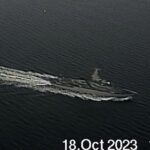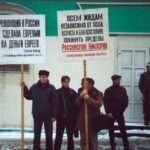Although we have not found direct evidence proving Moscow’s involvement in supplying the Hamas movement with North Korean weapons, there is a very high probability of such copartnership. Particularly, collaboration of the DPRK and Moscow with terrorist organizations, which increases the risk of breaking conventional weapons sanctions restrictions, as well as the threat of an exchange of nuclear weapons technology and giving the access to the international terrorist organizations is the matter of a big concern.
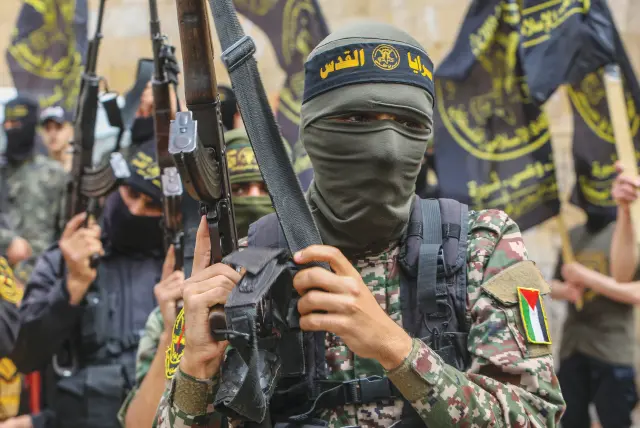
More on this story:Hamas assault on Israel suggests external support, planning
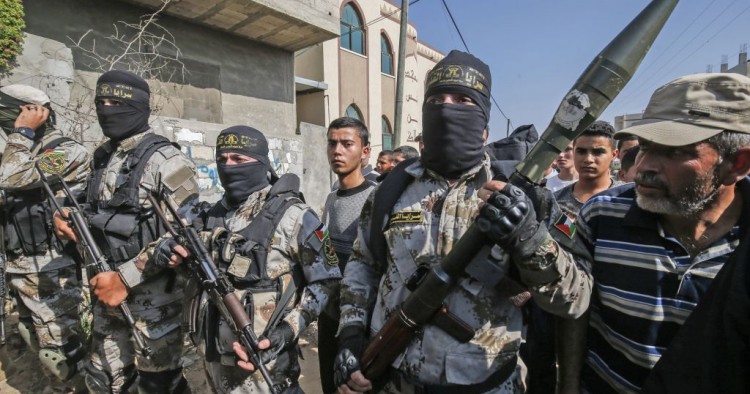
More on this story: ussian PsyOp proves the Kremlin’s involvement in the operation agaist Israel
According to the Associated Press, while attacking Israel on October, Hamas could fire North Korean weapons. This information is confirmed by the weapons captured on the battlefield by Israel. In particular, we mean F-7 rocket-propelled grenade, artillery ammunition and small arms.
Moreover, the missiles used in assault on Israel are assembled with North Korea-made components. However, yet it cannot be said that all the ammunition was manufactured in the DPRK. Most likely, Pyongyang supplied the Palestinians with certain elements, including explosives. The found artillery shells produced by the DPRK may also prove Russia’s involvement in arms shipments to Hamas. The transportation of this range of weapons has been negotiated during bilateral meetings between the Russian military leadership and official Pyongyang over the past two months. Thus, there is a hypothesis that Moscow supplied some North Korean ammunition to the Hamas movement to attack Israel. This hypothesis looks logical if the Kremlin used this operation to disrupt high-tech Western weapons supplies to Ukraine. Moscow decided to sacrifice cheap Soviet-style ammunition and fill up its own arm shortage with the weapons imported from the DPRK.
Thus, Moscow seeks to exhaust Western resources by maintaining military assistance to Israel against the backdrop of supplies to Ukraine.
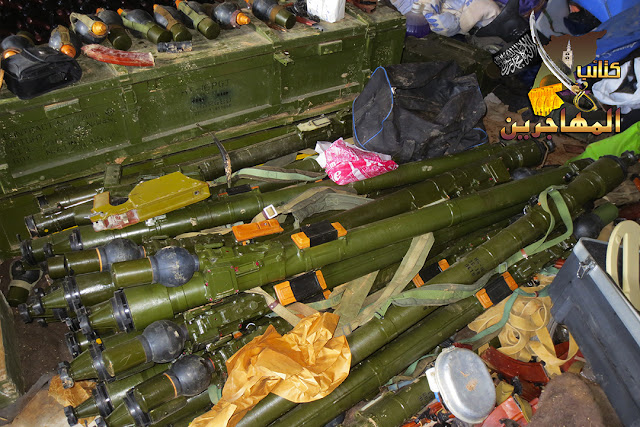
North Korean weapons have been documented in Syria, Iraq, Lebanon and the Gaza Strip.
According to our assessments, weapons from the DPRK were probably transited through Iran and Syria. The transit route through Syria suggests that the Russian government knew about the shipments because the military and political leadership is totally infiltrated by Kremlin informants. North Korea has a long history of supplying weapons to terrorist organizations in the Middle East.
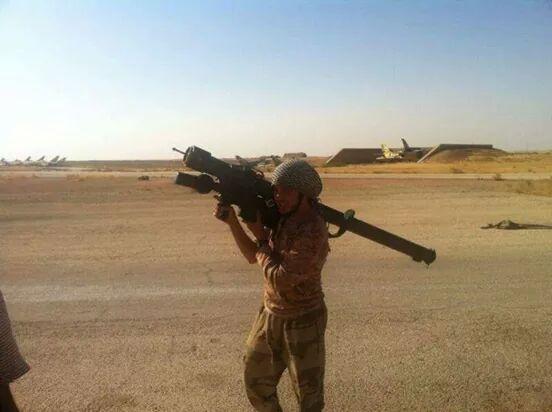
On July 23, 2014, a US district court ruled that ‘North Korea and Iran are liable for damages because they provided material support and assistance’ to Hezbollah, which enabled the latter’s rocket attacks during the 2006 war with Israel. Only a few days later, the Daily Telegraph claimed that Hamas, ‘looking for ways to replenish its stocks because of large numbers it has fired at Israel in recent weeks’, is negotiating a new arms deal with North Korea.
Today, North Korea’s dominant motivation for arms sales is the possible financial gain—a driver which may well apply to North Korean provision of weaponry to groups like Hezbollah and Hamas.
Pyongyang’s relationships with non-government groups have historically tended to form part of their relationship with a state friend, in this case, Iran and Syria.
Following Hamas’ attack on Israel the DPRK showed its political support of the Palestinians.
North Korean media is siding with Hamas in blaming Israel for the armed conflict in the region.
Pyongyang has long recognized and provided aid to Palestine and condemned Israeli military actions in the region. In 2008, North Korea denounced Israel for launching air raids on the Gaza Strip.
The country took similar actions in 2014, decrying ‘Israel’s brutal killings of many defenseless Palestinians through indiscriminate military attacks on peaceable residential areas in Palestine as they are unpardonable crimes against humanity’
Pyongyang’s support for the Palestinians is not just a financial issue. In such a way the DPRK fights with the United States. In this context there are parallels with Russia’s foreign policy, which is also focused at counteracting Washington, and cooperating with any America’s enemy who is seen by the Kremlin as an ally.
The intensification of contacts between anti-American forces and terrorist organizations is one more point of concern.
Primarily, North Korea’s relationship with armed groups in the Middle East has likely involved three formats: training, infrastructure support and weapons supply. Palestinian militants, including one of Fatah founders, was trained in North Korea as early as the 1960s. Hezbollah also allegedly benefitted from such training in the 1980s and 1990s. Pyongyang has also reportedly supported Hamas and Hezbollah in building tunnels and underground facilities, a specialty of the North Koreans, whose networks under the DMZ are renowned.
The 2008-2009 period offers a relatively substantial degree of (admittedly dated) information on North Korea’s relationships with Hamas and Hezbollah. During that time, there appear to have been four confirmed seizures of North Korean cargo en route to Iran or Syria, where Hamas or Hezbollah could have been the end-users. Information on the weapons seized in those cargoes is useful in figuring out the present shopping list of the two groups.
In 2008, two containers filled with “rocket fuses” bound for Bandar Abbas in Iran were seized by an unspecified United Nations Member State. The UN Panel of Experts (PoE) alleged that these were similar to fuses that were found in two other cargoes detained the following year. Since one of those later cargoes of rocket fuses was identified as for 122mm Katyusha rockets, one can reasonably conclude that fuses from 2008 were for the same system.
In March 2009, Israel intercepted the MV Francop and discovered 500 tons of weapons on its way from Iran to Syria. The weapon arsenal included: 120mm, 80 mm, and 60mm Iranian mortars; 107mm Iranian rockets; Chinese ammunition for AK-47s; hand grenades, Spanish 106mm anti-tank shells; Soviet and North Korean-made 122mm Katyusha rockets; and North Korean fuses for the Kayushas.
In July 2009, the UAE detained the ANL Australia en route from the DPRK to Bandar Abbas. Ten containers of military-related goods, including another 2,030 fuses for 122mm Katyusha rockets, were found on board.
As the UAE’s subsequent report informs, detonators, rocket launchers, munitions, and explosives including ammunition for rocket-propelled grenade (RPG) weapons were in the ship containers. The same year in December Thai authorities grounded an IL-76 cargo plane flying from the DPRK.
Though the Panel doesn’t mention the systems specifically, a cursory glance at the cargo photos suggests the rocket-propelled grenades were RPG-7s, and the man-portable air defence systems were the North Korean version of the Russian-designed “Igla-1.” While Israel said the loot was bound for Hamas and Hezbollah, the White House was a bit more conservative in its analysis, and merely said Hamas.
North Korea is adept at producing some of the arms that Hamas and Hezbollah most need. It has domestic production lines (and if they follow the old Soviet model, stockpiles as well) for 240mm and 120mm multiple rocket launchers and their associated rockets and fuses, AK-47s and ammunition, RPG-7s and a variety of warheads for them, and Igla-copy MANPADS.
Pyongyang had an ability to produce “an indigenous variant” of the 1970s Soviet 9K111 Fagot guided anti-tank missile, which they seem to have delivered to Hamas militants.
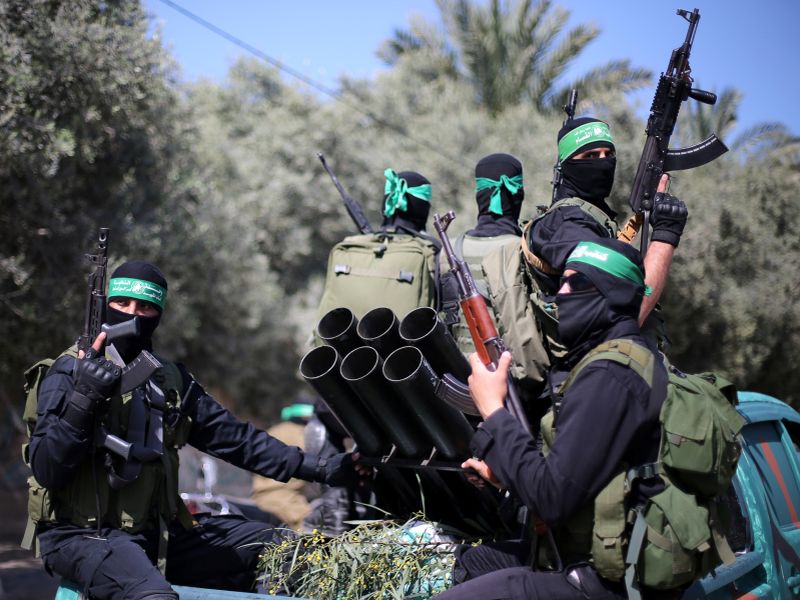

More on this story: Russia is staking on the Hezbollah
In all of the seizures of North Korean cargo allegedly bound for Palestinian militants or for Hezbollah, Iran has been, at minimum, a critical logistical node and enabling force. Its logistical network and supply routes, including the port at Bandar Abbas, are essential for getting goods from the manufacturer to the end-user. The sharing of proliferation networks between North Korea, Iran and Syria has been relatively well documented, and there is little reason to doubt that this dynamic will persist.
Iran may play a greater role than merely as a logistical link in the chain: it may actively direct procurement for its non-state militant friends in the region. Supporting this notion, the Secretary of Iran’s Expediency Discernment Council was quoted on state television as saying that ‘Palestinian resistance missiles are the blessing of Iran’s transfer of technology’. Finally, Iran may actively endorse the supply of North Korean-made products when Tehran cannot fill a particular order itself. North Korean 122mm rockets and fuses were shipped by or through Iran several times, complementing the Soviet/Russian- and Syrian-produced variants that are likely also in Hamas and Hezbollah arsenals.


